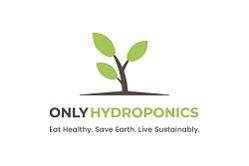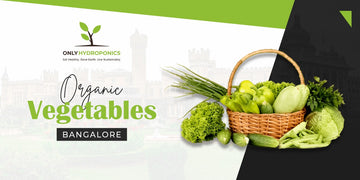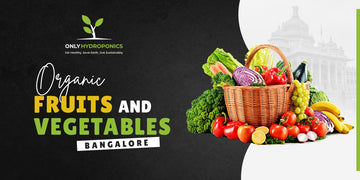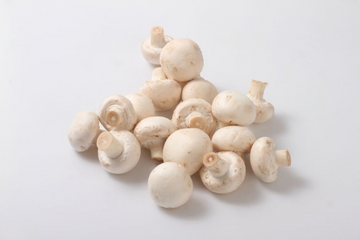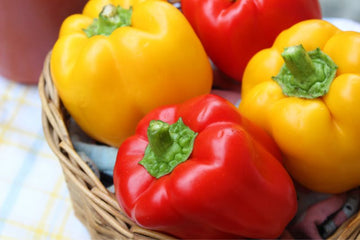Hydroponic Farming: Advantages and Disadvantages of the process
by Chandan Varshney on Sep 23, 2021

Hydroponic Farming: Advantages and Disadvantages of the process.
Everyone wants a healthy lifestyle, and we try several ways to keep ourselves healthy. Some of us play sports, join a gym, practice yoga, etc. However, there is one common thing, and that is a healthy diet. A healthy diet is significant to lead a healthy lifestyle. Farming is the primary aspect to get a perfectly healthy diet. In agriculture, new inventions are being made every day to increase the yield and yield of crops. Many new technologies are also being used. Similar techniques include hydroponic farming. Given the profits, farmers are being attracted to hydroponic farming. So here, we have gathered some information about the process of Hydroponic farming. So, If you like to eat the best hydroponic food, keep reading.
What is Hydroponic farming?
In earlier times, hardly anyone would have thought that farming could be done without soil. But hydroponic technology has made it possible. Hydroponic farming is a process and a gardening style in which plants are grown without using the soil. Instead of it, you use a combination of water and fertilizers. When a plant is cultivated in soil, the roots of the plant reach out to the nutrients. However, when roots of a plant are exposed directly to the nutrients, then the plant does not have to waste any energy to sustain itself. Hydroponic farming follows this principle, and usually, the water is used to provide nutrients and oxygen to plants. This way of farming is getting popular day by day. However, every process has its advantages and disadvantages. So here, we have gathered some information about the pros and cons of hydroponic farming.
Pros of Hydroponics
Plantation without soil:
We can grow plants in places where land is limited, does not exist, or is contaminated. In an early period, hydroponics technology was used to supply fresh vegetables to soldiers in Wake Island. NASA considered it to be the farming of the future to grow foods for astronauts in space.
No effect of the climate:
This process helps to grow crops without any worries about the season or climate. Hydroponic growers can have total control over temperature, humidity, light, and air composition. You can grow crops at any time of year. As per the requirements, you just have to adjust the temperature, humidity, and light.
Better use of space:
The land is the primary source for growing crops. However, in the case of hydroponic farming, the crops can be grown in a small space. With all the plants needed and maintained in one system, you can grow plants in a small apartment, bedroom or kitchen as long as you have some space. For example, If you live in a small flat, you can still grow crops by this process.
Low Water Consumption:
By using this technique, you can avoid consuming more water.
Hydroponic farming saves about 90% of water. The plants get the water they need, while the run-off water is captured and returned to the system. The water loss in this system will occur in only two forms – evaporation and seepage from the system.
Better Growth Rate:
Do Hydroponic Plants Grow Faster Than Soil? Yes, because you can determine the conditions conducive to plant growth, such as temperature, light, moisture, and especially nutrients. As plants are kept in favourable conditions, nutrients are provided in sufficient quantities.
Here at OnlyHydroponics, we only sell the best hydroponic vegetables. So, If you are looking for the best hydroponic food, check out this link.
Cons of Hydroponics
It needs time and commitment:
The process of Hydroponics is a bit time-consuming. If you grow crops in the soil, you can leave them for days. However, in this process, you have to change the water at regular intervals. You also have to check the crops regularly. You can not leave crops in water for days.
Expensive Equipments:
Soil farming does not require expensive equipment. Whereas the hydroponics process needs high-quality equipment. You need a container, high-quality nutrients, an accurate timer, and high-quality lighting. After all this, you will have to pay for electricity and nutrients.
Risk of electricity and water:
Water and electricity are the two primary components of hydroponic farming. You need to follow proper safety measures for yourself and the plants. If you want to work with this process, you will need to have stable electricity and adequate water.
System failure:
Working with hydroponic needs precautions. There can be a blackout or dimout. This system can not operate without proper electricity. Without it, your crops will dry out, and the system will not work.
Knowledge and Experience:
The system you will be using will run on a wide variety of devices, which will require expertise to use the device. What plants can you grow, and how will they survive and thrive in a cool environment? If you make a mistake in setting up the system, it will affect the growth of your plants, or you will end your entire progress. So, knowledge and experience are significant in this process.
Now, you are familiar with the pros and cons of Hydroponics. It is an excellent method, and it’s beneficial. Many people of Australia and the US have tried it and found it better than regular farming. If you are looking for the best hydroponic vegetables, check out this link. So that you can have the best hydroponic food.
